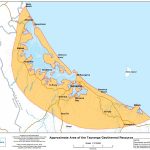Online voting … not rocket science. Or even flying cars. So why isn’t it available?
Voting via the Internet has been in use for some time for Director elections, student societies and more. The large number of commercially available systems available for this tells us there’s a demand for the service.
The goal of any election method remains the same: the public need to be 100% certain that (i) only eligible voters can vote, (ii) each voter can only vote once, and (iii) there’s been no tampering with the voting.
But what about..?
Concern with the risk of possible coding errors, or, ‘bugs’ can be addressed by robust review and testing processes. The biggest technical hurdle for online voting is security which, these days means two basic security risks: authentication and hacking.
Authentication is about unequivocally ensuring any voter is who they are supposed to be, and hacking is the pretty well-known danger of interfering with the process and/or results. Coincidentally, the exact same hurdles financial institutions in NZ have dealt with to deliver secure Internet Banking for roughly 20 years!
Challenges for the Government
Given the maturity of how banks securely manage the online banking channel, the basic challenge for government is twofold: (i) ensuring identifiers are only given to eligible voters, and (ii) the right identifier getting to the right voter. These can be overcome with a one-time in-person registration process as needed to be set up for Internet Banking. It’s likely that the cost of the initial large-scale registration would be offset by the cost-savings of eliminating polling stations / paper-based voting process at one election (and voting would need to move entirely online as a hybrid of online and in-person voting makes ensuring one voter = one vote very difficult to manage). Of course, ensuring convenient access to the Internet for all voters then becomes critical.
Are we ready?
And even if the cost-benefit looks favourable and the project to create online voting achieved within the timeframe and budget established (some might argue: not a government forté …) the reality is the public would still need to be convinced that the loss of anonymity of voting enjoyed with traditional balloting is acceptable, since all electronic transaction are traceable (even if highly secure).
Therefore, this is as much a level-of-comfort issue as anything else. Meaning that the first order of business for any government wanting to shift to online voting is convincing the public any proposed online voting system will absolutely comply with privacy legislation.
Online voting is feasible
Having considered international experiences, the local government electoral system and technological and security challenges associated with enabling voting online, we consider that online voting is feasible and desirable. It could make the voting process easier and faster, increase the speed and accuracy of obtaining results and could reduce costs of local elections over time.
– Report from the Online Voting Working Party established on 4 September 2013 to consider the feasibility of online voting in New Zealand.
By Nelson Tkatch, Managing Principal, eSuccess Strategies who specialise in IT Governance & Execution Excellence
I write for this magazine to help the community better understand technology trends and options.




































































